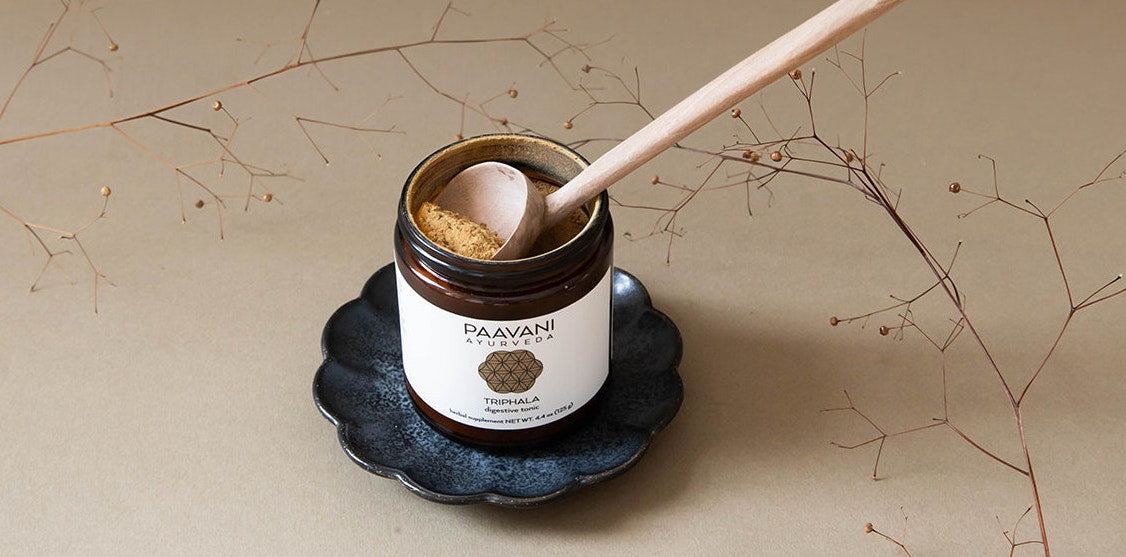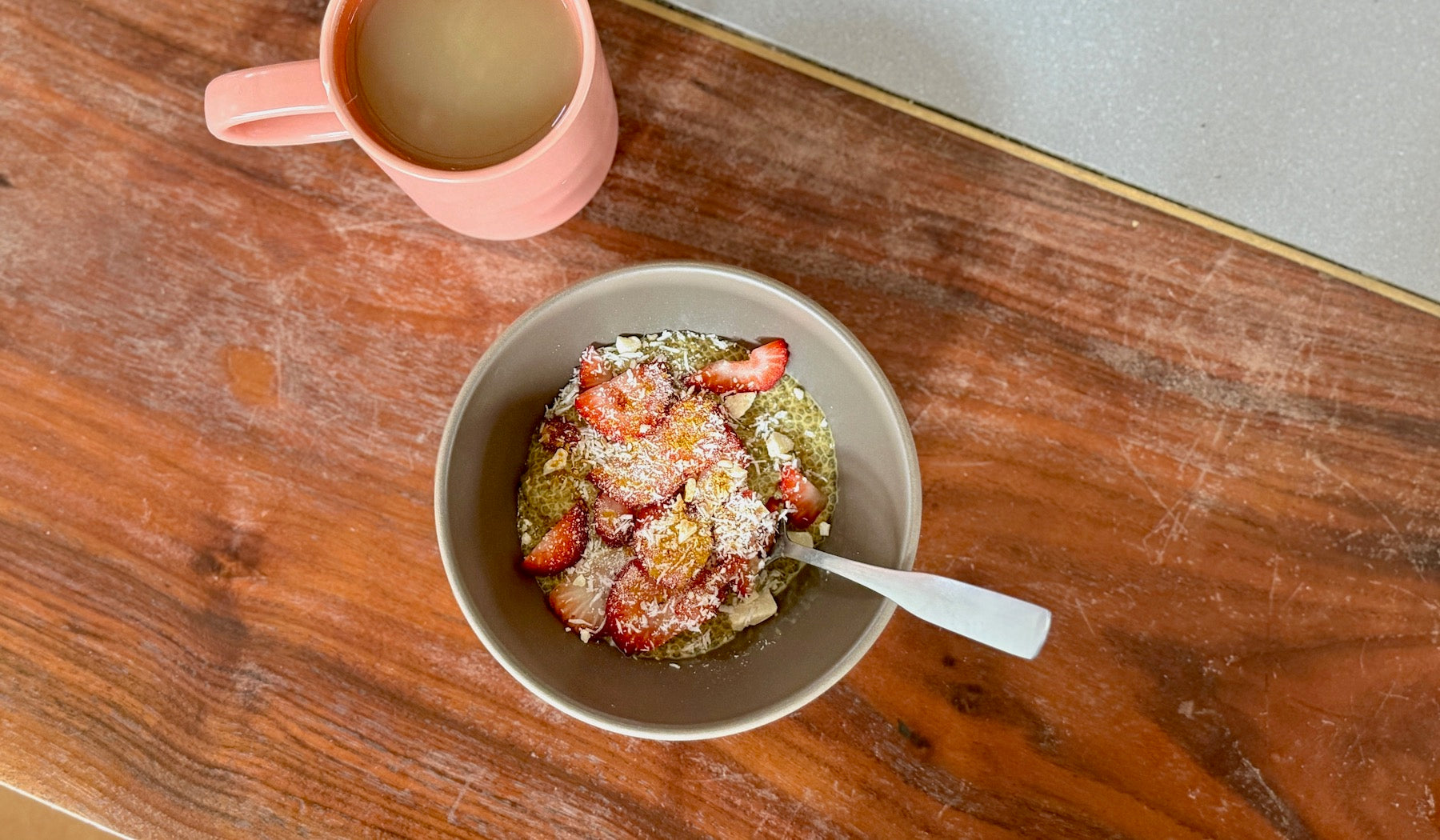
Botanicals of the Heart: 8 Herbs to Support Cardiovascular & Emotional Heart Health
Valentine’s Day has come and gone, but we hope your expressions of love, self-love and self-care continue throughout the year. In honor of love, we would like to share some of our favorite healing herbs for physically and emotionally nourishing the heart. Learning to tend to matters of the heart will not only strengthen your cardiovascular health, but will also open your emotional heart, connecting you to your throbbing essence of pure consciousness and love.
8 Herbs to Support Cardiovascular & Emotional Heart Health
Arjuna
This widely used Indian herb is named after young warrior Arjuna, the central protagonist in the Bhagavad Gita (one of Hinduism’s most sacred texts), due to its many parallels with this revered character. For example, in the Bhagavad Gita, Arjuna embarks upon a hero’s journey to realize that strength, wisdom, righteousness and purity will help him to fulfill his life’s work (dharma). Like the character Arjuna, the herb arjuna helps us stay healthy and vital so that we may realize our own dharma. Considered the Hero of the Heart in Ayurvedic medicine, the bark of the arjuna tree has tonifying, strengthening and balancing effects on the heart and entire cardiovascular system. Specifically, arjuna can strengthen the heart’s muscles and help it maintain healthy blood pressure and cholesterol levels. Emotionally, arjuna imparts strength and courage and can support individuals experiencing grief and sadness.
Ayurveda considers Arjuna to be tridoshic, or balancing to all 3 doshas; however, it can imbalance vata dosha when used in excess.
Cinnamon
Modern research has shown that cinnamon, a warming, sweet and familiar herb to many, can benefit overall heart health by helping to manage blood sugar levels, improve blood circulation, optimize blood pressure and reduce “bad” cholesterol (low-density lipoprotein (LDL) cholesterol levels). This evidence-based research aligns with the 5,000-year-old wisdom of Ayurveda as Ayurvedic medicine shares that cinnamon is a highly effective herb for strengthening and improving the flow of circulation within the body, and it can also enhance and fortify the heart. Emotionally, cinnamon can relieve nervous tension and has an old reputation as an aphrodisiac.
In Ayurvedic medicine, warming cinnamon is best for cool kapha and cold vata, while it can be overheating and vitiating to inherently hot pitta dosha.

Hawthorn
Also known as the Herb of the Heart in Western herbal medicine, hawthorn is a must when discussing beneficial plants for heart health. Hawthorn leaves, berries and flowers can be enjoyed as food, tea, in a tincture as an herbal powder or capsules. In all its forms, Hawthorn contains beneficial properties for the heart and, thus, the cardiovascular system. For example, studies have shown that hawthorn can reduce angina attacks and lower blood pressure and serum cholesterol levels (the total amount of cholesterol in one’s blood). Hawthorn is also beneficial for maintaining clear arterial channels. Traditionally, hawthorn is used to celebrate Beltane, the Gaelic Mayday festival that welcomes the summer season and was historically used as decoration during wedding ceremonies to impart love, fertility and an open heart.
In Ayurveda, Hawthorn is most balancing to vata dosha and can vitiate pitta and kapha doshas when used in excess.

Hibiscus
Cooling in nature, fragrant and tart hibiscus is an excellent flower to help detoxify the blood. In herbalism, an herb that has this action is called an alterative. Besides its blood-purifying properties, studies have shown that hibiscus may help lower blood pressure. For people with high blood pressure, enjoying hibiscus tea regularly can help their hearts not pump so hard to deliver blood to the rest of the body. In other words, it can positively improve systolic and diastolic blood pressure. Interestingly, in Hinduism, the hibiscus flower is sacred to Ganesha, the elephant god, who is the remover of obstacles. This association aligns with the impact of this meaningful flower on the physical body since it helps to remove blockages to flow in the blood and heart.
In Ayurvedic medicine, hibiscus is most balancing to hot pitta dosha, can purify kapha dosha, and can be vitiating to vata dosha if used in excess due to its cooling, cleansing properties.

Lavender
Lavender is a protective herbal ally for the heart due to its effectiveness in reducing stress. As you might know, long-term stress can increase cortisol levels, and when high cortisol levels occur, blood cholesterol, triglycerides, blood sugar and blood pressure increase, which can have a detrimental impact on heart health.
Two chemical compounds in lavender, linalol and terpineol, have been found to calm the central nervous system; thus, helping to ease the heart. Additionally, there has been extensive modern research on the benefits of lavender, with electroencephalogram (EEG) readings displaying that lavender increases brain waves called alpha waves associated with being awake yet completely relaxed. In fact, alpha waves are the brain waves cultivated when one is in a meditative state. Thanks to the beneficial actions of lavender on the central nervous system and the mind, the heart can experience a sense of calm and not work as strenuously to do its job.
Ayurvedically speaking, lavender benefits all doshas and is especially indicated to calm the anxiety, overwhelm and restlessness associated with vata dosha and the anger, resentment and heated emotions related to pitta dosha.

Rose
Rose has been immortalized throughout history in literature, artwork, music, and poetry. In 600 B.C. the Greek poetess Sappho, christened rose “the Queen of Flowers”. Throughout the ages, roses have helped people build a deeper connection with self-love, compassion and self-care through its use in herbal remedies. The beauty and fragrance of this flower have even been cited to have aphrodisiac qualities and have been used amongst lovers to incite passion and romance. It has been said that Cleopatra would scatter rose petals when Marc Anthony visited her- this way, her lover would be reminded of her each time he saw or smelled a fragrant, delicate rose. Besides its healing properties for the emotional heart, rose also has protective factors for the physical heart thanks to an antioxidant called polyphenols, which can help reduce the risk of heart disease.
From the Ayurvedic perspective, rose is balancing to all doshas and has a particular affinity to help calm the fiery qualities associated with pitta dosha such as anger, irritability, jealousy and rage. To learn more about Rose, please visit our blog dedicated to the Queen of Flowers.

Triphala
Okay, so we may be cheating here by listing triphala as one herb since it’s 3 herbs in 1; however, we couldn’t help but include this traditional Ayurvedic formulation due to its synergistic, healing properties. Triphala contains the 3 Indian fruits haritaki, amalaki and bibhitaki, and together, this blend is commonly used for its ability to remove ama (toxins) from the body. Regarding heart health, triphala’s ability to eradicate harmful plaque from the blood vessels, its anti-inflammatory actions and its positive impact on cholesterol levels make it a gold star for a healthy, happy heart. Emotionally, triphala can help manage stress and reduce vata type feelings of anxiety, fear and overwhelm.
Triphala is a perfectly balanced classical Ayurvedic formula that harmonizes all 3 doshas- vata, pitta and kapha. To learn more about the amazing benefits of Triphala, please visit our blog dedicated to this Ayurvedic superstar.
Turmeric
Turmeric, the Golden Goddess of Ayurvedic herbalism, is chock-full of healing properties for many systems of the body. Studies have shown that turmeric’s anti-inflammatory and antioxidant qualities may help reduce the risk of heart disease and the heart disease process. For example, in the July 2012 edition of The American Journal of Cardiology, a study reported that when patients undergoing coronary artery bypass surgery took 4 grams of curcumin (turmeric’s beneficial chemical compound) daily, they experienced a 65% decreased risk of having a heart attack in the hospital. Even more, turmeric may improve healthy cholesterol levels, known as high density lipo-protein (HDL), therefore supporting heart health. Ayurvedic medicine explains that this golden herb is an alterative, as it helps to purify the blood. It also warms the blood, stimulating new, healthy blood tissue formation. Turmeric imparts the energy of Devi, the Divine Mother, who not only protects the physical heart but also the spiritual heart.
In Ayurveda, Turmeric is balancing to all doshas yet should not be used in excess by pitta due to its warming properties and vata doshas due to its purifying properties. Learn more about the Golden Goddess of Ayurvedic herbalism here!

Safety Precautions
Lead With the Heart and Live in Love
Equipped with this heart-centered knowledge and loving herbal allies by your side, we encourage you to support your physical, emotional, and spiritual heart all year long. Through mindful awareness and commitment to self-love, you will honor Ayurveda’s emphasis on preventative medicine and further your devotion to living your best life with an open, happy and healthy, loving heart.
Stay Cool, Calm & Collected
Hawthorn photo by Yusuf Colak from Pexels: https://www.pexels.com/photo/branches-with-berries-18060325/
Cinnamon photo by Pixabay: https://www.pexels.com/photo/cinnamon-sticks-71128/
Hibiscus photo by Jess Loiterton: https://www.pexels.com/photo/red-hibiscus-in-bloom-4327702/
Lavender photo by Peter Fazekas from Pexels: https://www.pexels.com/photo/purple-hyacinth-in-bloom-1170586/
Rose photo by samer daboul: https://www.pexels.com/photo/selective-focus-photography-of-red-rose-1212823/
Turmeric photo by Karolina Grabowska: https://www.pexels.com/photo/spice-in-a-net-bag-5852210/





2 comments
@MrsHumphrey, thank you for your feedback! We are strong advocates for the benefits that herbs can have on heart health as well as for the self-determination of each individual to make informed healthcare decisions for themselves. We hope that you are able to establish care with a knowledgeable doctor that can offer personalized advice to help you choose the right herbs for your well-being and help continue to manage your CHF well!
PAAVANI Ayurveda
Thank you for sharing these herbs. I had been diagnose with congestive heart failure rather than take meds I chose herbs. I never have taken meds and my doctor was not in agreement with me but it’s my body and I know it better than any doctor. So for that reason I have been taking herbs and in 6 months I have gone from almost dead with a 25 percent heart function to a 59 percent normal heart. My doctor still insists that the herbs did not do that but I know by making teas and drinking nightly has been my saving grace.
Mrs Humphery
Leave a comment
This site is protected by hCaptcha and the hCaptcha Privacy Policy and Terms of Service apply.